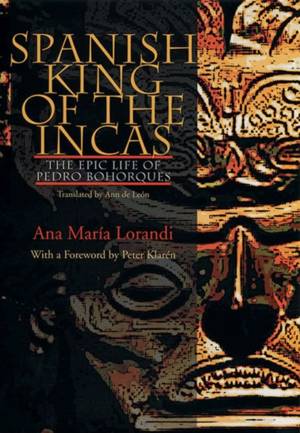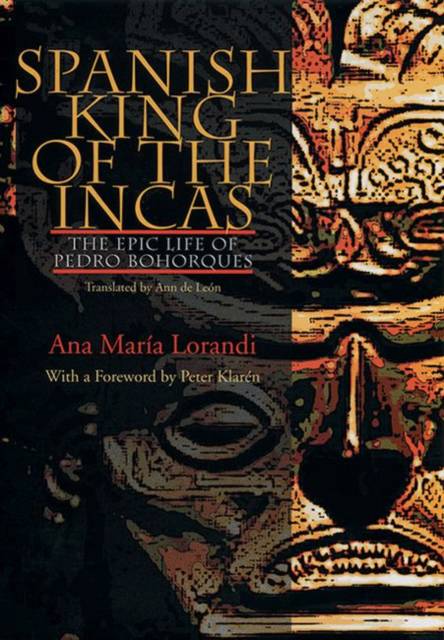
- Afhalen na 1 uur in een winkel met voorraad
- Gratis thuislevering in België vanaf € 30
- Ruim aanbod met 7 miljoen producten
- Afhalen na 1 uur in een winkel met voorraad
- Gratis thuislevering in België vanaf € 30
- Ruim aanbod met 7 miljoen producten
Zoeken
€ 83,95
+ 167 punten
Uitvoering
Omschrijving
Described in his lifetime as "mad," "a dreamer," "quixotic," and "a lunatic," Pedro Bohorques is one of the most fascinating personalities of Spanish colonial America. A common man from an ordinary Andalusian family, he sought his fortune in the new world as a Renaissance adventurer. Smitten with the idea of the mythical cities of gold, Bohorques led a series of expeditions into the jungles of Peru searching for the paradise of El Dorado. Having mastered the Quechua language of the countryside, he presented himself as a descendent of Inca royalty and quickly rose to power as a king among the Calchaquíes of Tucumán. He was later arrested and executed by the crown for his participation in a peasant revolt against Spanish rule. In Spanish King of the Incas, Ana María Lorandi examines Bohorques as a character whose vision, triumphs, and struggles are a reflection of his seventeenth-century colonial world. In this thoroughly engaging ethnohistory, Lorandi brings to light the many political and cultural forces of the time. The status of the Inca high nobility changed dramatically after the Spanish conquest, as native populations were subjugated by the ruling class. Utopian ideals of new cities of riches such as El Dorado prevailed in the public imagination alongside a desire to restore an idealized historic past. As the Middle Ages gave way to the new belief systems of the Renaissance, ingenuousness about mythical creatures became strong, and personal success was measured by the performance of heroic deeds and the attainment of kingdoms. Charismatic and bold, Pedro Bohorques flourished in the ambiguous margins of this society full of transition and conflict. Ann de León's artful translation preserves both the colorful details of the story and the clarity of expression in Lorandi's complex analyses.
Specificaties
Betrokkenen
- Auteur(s):
- Uitgeverij:
Inhoud
- Aantal bladzijden:
- 272
- Taal:
- Engels
- Reeks:
- Reeksnummer:
- nr. 74
Eigenschappen
- Productcode (EAN):
- 9780822962847
- Verschijningsdatum:
- 15/01/2014
- Uitvoering:
- Paperback
- Formaat:
- Trade paperback (VS)
- Afmetingen:
- 150 mm x 229 mm
- Gewicht:
- 362 g

Alleen bij Standaard Boekhandel
+ 167 punten op je klantenkaart van Standaard Boekhandel
Beoordelingen
We publiceren alleen reviews die voldoen aan de voorwaarden voor reviews. Bekijk onze voorwaarden voor reviews.











